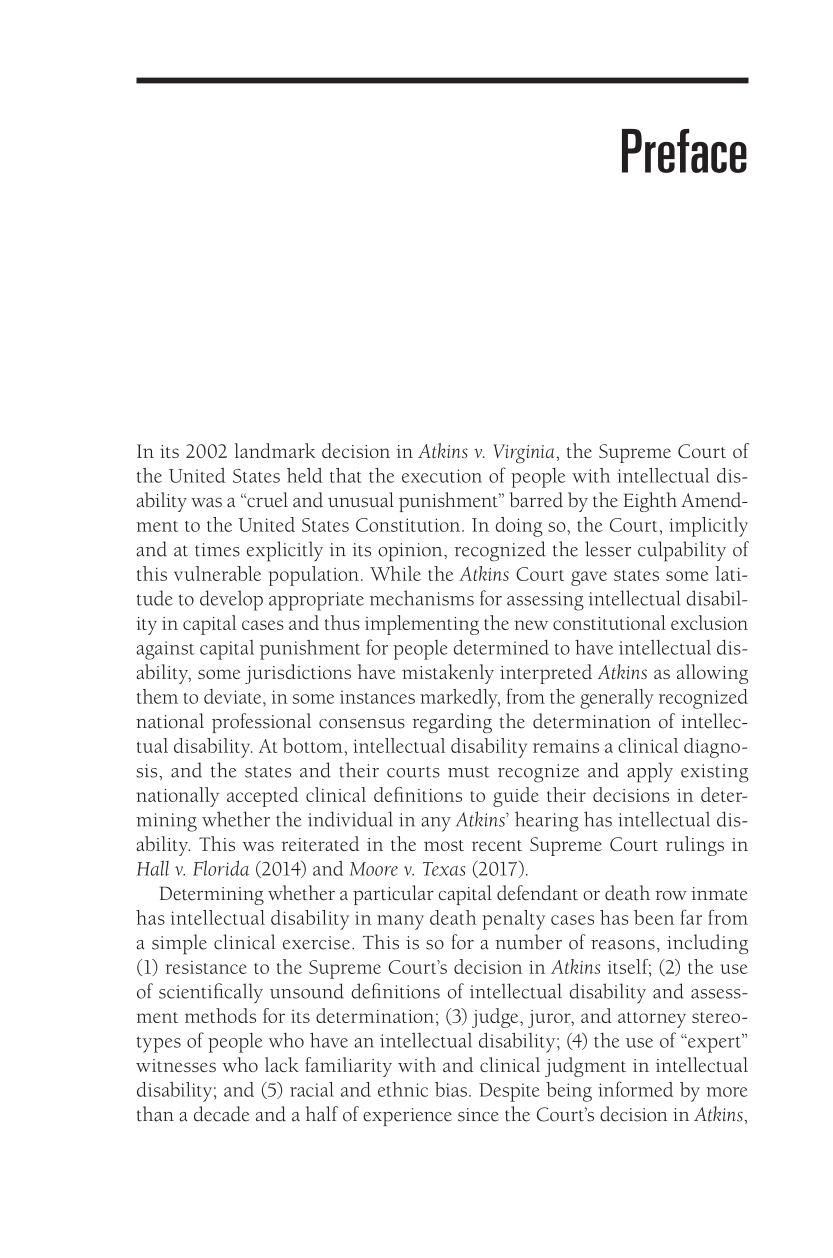Preface
In its 2002 landmark decision in Atkins v. Virginia, the Supreme Court of
the United States held that the execution of people with intellectual dis-
ability was a “cruel and unusual punishment” barred by the Eighth Amend-
ment to the United States Constitution. In doing so, the Court, implicitly
and at times explicitly in its opinion, recognized the lesser culpability of
this vulnerable population. While the Atkins Court gave states some lati-
tude to develop appropriate mechanisms for assessing intellectual disabil-
ity in capital cases and thus implementing the new constitutional exclusion
against capital punishment for people determined to have intellectual dis-
ability, some jurisdictions have mistakenly interpreted Atkins as allowing
them to deviate, in some instances markedly, from the generally recognized
national professional consensus regarding the determination of intellec-
tual disability. At bottom, intellectual disability remains a clinical diagno-
sis, and the states and their courts must recognize and apply existing
nationally accepted clinical definitions to guide their decisions in deter-
mining whether the individual in any Atkins’ hearing has intellectual dis-
ability. This was reiterated in the most recent Supreme Court rulings in
Hall v. Florida (2014) and Moore v. Texas (2017).
Determining whether a partic u lar capital defendant or death row inmate
has intellectual disability in many death penalty cases has been far from
a simple clinical exercise. This is so for a number of reasons, including
(1) resistance to the Supreme Court’s decision in Atkins itself; (2) the use
of scientifically unsound definitions of intellectual disability and assess-
ment methods for its determination; (3) judge, juror, and attorney stereo
types of people who have an intellectual disability; (4) the use of “expert”
witnesses who lack familiarity with and clinical judgment in intellectual
disability; and (5) racial and ethnic bias. Despite being informed by more
than a decade and a half of experience since the Court’s decision in Atkins,

































































































































































































